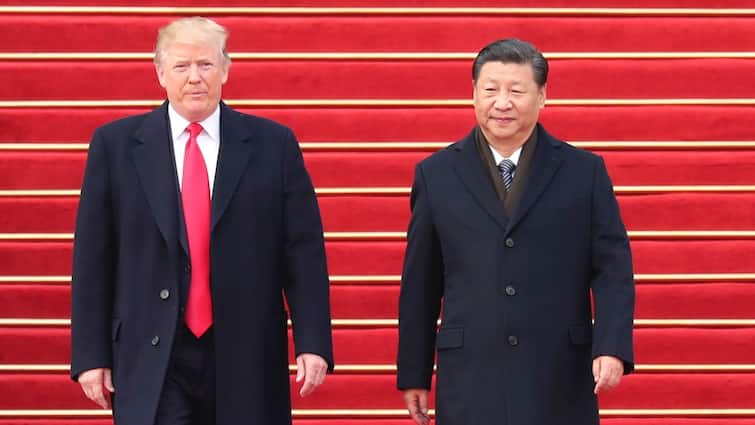The United States and China have struck a framework arrangement to shift TikTok to U.S.-controlled ownership, officials confirmed on Monday. The agreement is set to be sealed during a scheduled phone call between U.S. President Donald Trump and Chinese President Xi Jinping on Friday.
According to U.S. Treasury Secretary Scott Bessent, the Wednesday deadline threatening to shut down the platform in America pushed Beijing to negotiate. Bessent noted the deadline could be extended by up to 90 days to finalise terms but declined to provide specifics, news agency Reuters reported.
“When the commercial terms of the deal are revealed, it will preserve aspects of TikTok that Chinese negotiators care about, including its ‘Chinese characteristics,’” Bessent told reporters after two days of talks in Madrid, as quoted by Reuters. “They’re interested in Chinese characteristics of the app, which they think are soft power. We don’t care about Chinese characteristics. We care about national security.”
China’s top trade negotiator, Li Chenggang, also said the two sides had reached a “basic framework consensus” on resolving TikTok-related issues.
This is the second time in 2025 that both sides have said a resolution on TikTok was close. A similar March announcement did not materialise. Any final deal will likely need approval from the Republican-majority Congress, which passed legislation in 2024 requiring divestiture over concerns that Beijing could use TikTok’s U.S. user data for surveillance or influence campaigns.
Despite these worries, the Trump administration has refrained from enforcing a complete shutdown, wary of angering the platform’s vast user base and disrupting political messaging, including communications by the White House itself.
Uncertainty remains over whether TikTok’s parent company ByteDance would transfer its core technology to the as-yet unnamed American buyer.
Trump Hails Progress Ahead of Call with Xi
Trump took to his Truth Social platform to celebrate progress on the deal.
“The big Trade Meeting in Europe between The United States of America, and China, has gone VERY WELL! It will be concluding shortly,” he posted.
“A deal was also reached on a ‘certain’ company that young people in our Country very much wanted to save. They will be very happy! I will be speaking to President Xi on Friday. The relationship remains a very strong one!!!”
The talks, held at Spain’s Palacio de Santa Cruz, marked the fourth round of high-level discussions between U.S. Treasury Secretary Scott Bessent and Chinese Vice Premier He Lifeng since May. They also covered wider trade tensions, including tariff disputes and China’s halt of rare earth exports to the U.S.
Broader Trade Disputes in Spotlight
U.S. Trade Representative Jamieson Greer, part of the Madrid delegation, described the outcome as encouraging.
“It’s no secret that there are serious issues on trade, economics, and national security between the United States and China. To be able to come, sit down, quickly identify the issues, narrow them down to a very granular spot, and be able to come to a conclusion, subject to the leaders’ approval, I mean, that is remarkable,” Greer said, as per Reuters.
Bessent added that talks on broader matters would continue and hinted Trump could still travel to Beijing for a summit, depending on discussions during Friday’s call.
U.S. Ready To Ban TikTok If Deal On Divestiture Not Finalised
Earlier, a U.S. official said Washington had warned it would press ahead with banning TikTok unless China dropped demands for tariff reductions and eased technological restrictions tied to the deal. “Our Chinese counterparts have come with a very aggressive ask,” Bessent remarked, stressing, “We are not willing to sacrifice national security for a social media app.”
The negotiations also touched on Washington’s push for allies to impose tariffs on Chinese imports over Beijing’s continued oil trade with Russia, a move China labelled coercive. On the same day, Beijing announced a preliminary probe into U.S. chipmaker Nvidia for alleged monopoly violations—a step widely interpreted as retaliation against American curbs on Chinese tech.



